Opening a store overseas may sound very tempting but can be fraught with danger. If you’re still keen there are some basic rules to heed.
Tesco doesn’t get much wrong but two places where it has failed to work its magic formula are Taiwan and Malaysia where profitability has been elusive to date.
Tesco expects Malaysia to go into the black “fairly soon” but Taiwan is looking more peaky. Sir Terry Leahy, Tesco’s chief executive, was reported in the September 21, 2005 edition of the Financial Times as saying he would pull out of Taiwan only if he could not see a way out.
Just nine days later, the FT was reporting that Tesco was poised to swap its stores in Taiwan for French supermarket chain Carrefour’s stores in Slovakia and the Czech Republic.
The fact that mighty Tesco can find things tough in some overseas markets should serve as a warning to aspiring migrant c-store operators to pick their destination carefully.
Fiona Watts, a director at PropertyFinance4Less, part of the 4Less Group, a London-based provider of financial services for corporate and private customers, says the country of choice depends to a large degree on the individual, what they are looking for, and their skills.
She advises against setting up in countries where the operator does not speak the language well. “Even in the very English-speaking Costa Del Sol we have heard horror stories of things going wrong because all the paperwork and red tape around setting up, purchasing and running a business is in Spanish,” she says.
Canada, the United States or Ireland, for those whose only language is English, might be a safer bet, she suggests.
Watts says the first thing to do is to consider your own strengths and linguistic ability and then thoroughly research your options in the country of your choice.
Make your decision based on the legal issues you will face, the tax situation, how complicated it will be to get appropriate visas and work permits, the culture, politics and language.
She says specialist help is needed which can amount to 5% of the budget. “In particular, you are going to need legal advice not just on the property purchase but on work practices, employment law, work permits and visa requirements as well as specialist tax advice.
“What’s the use of opening your newly acquired store on a working visa only to find it is valid for a few months and you have to return to the UK to renew it or, indeed, that you may not be able to renew it for two years.”
Watts warns against going to countries without a tax treaty because you may end up paying through the nose. “A few hours of an overseas tax adviser’s time will be worth every penny,” she says.
As a non-native, unless you are fluent in the language, local customs and know your potential market really well, local lenders would consider you a poor risk and would be disinclined to lend you the funds to open, although this may be less of a problem in English-speaking countries, says Watts.
Even in an English-speaking country, she recommends buying an existing convenience store rather than starting from scratch. “This is because as well as knowing what you are getting and having something to build on, you can usually deal with the vendor’s own bank, who knows its profit history and potential. This should make it far more receptive to you.”
The Royal Institution of Chartered Surveyors (RICS) says a single-shop business person planning to close their store and go elsewhere should contact the British Chamber of Commerce in the country of choice for advice on work permits and local rules.
For example, some south-east Asian countries will only allow people from the majority population to start a business. In Malaysia, you need to have a Malay on your board.
Then find a property adviser - RICS has members all over the world. James Rebbeck, a spokesman for RICS, says that if a specific country does not have a member, retailers should go to their own commercial property body.
Thomas Green, a new franchisor which has three British-style shops in the Costa Blanca, Spain and three stores in the Netherlands, will shortly open in France and by the end of next year hopes to have a dozen franchises in Europe.
Philip Evans, managing director, who sources product for the group through Nisa-Today’s, says people choose to open convenience stores abroad for either economic or lifestyle reasons, or both.
“Twenty years ago, to open overseas would have been regarded as pretty risky, but these days, particularly in the European Union (EU), it is not such a big thing for many families. You can do it and it can be fun and hopefully you can earn money at the same time.”
But Evans warns that it needs everyone’s commitment if you are doing this with your family. “If your wife is going with you and she is unhappy, you may as well not go.”
Evans says you have to be the kind of person who can accept a challenge. “Unless you are a lawyer, have good contacts or have a lot of money, there are lots of hurdles. These hurdles are higher and more than you think because of language and regulatory barriers.”
Research is crucial, he says. You may have visited a country many times but you need to find the evidence of who your customers are going to be, how the customer profile will vary through the seasons, the products that will be in demand, what your average basket spend will be and who the competition is.
“Most people don’t think that through very clearly because they are driven by the fact they want to be there.”
That’s before you have even thought about the main financial issues of establishing yourself.
Evans, who has a lot of expertise in the Spanish market, warns the percentage of failures is “pretty high” in Spain.
He urges people to plan properly. “We say to people that realistically, for a Thomas Green franchise to open the door fully stocked, they will need €50,000-€60,000, with property the big determinant.
“We emphasise to people that whatever they believe the local regulatory environment is, they must get a local lawyer to check for them. Everywhere is slightly different in Spain.”
Evans says you can set yourself a budget but bear in mind the great unknown, which is the property. He says a fair chunk of the finance has to be existing capital. “I’m not comfortable about people borrowing big amounts unless they have existing property they can mortgage against. You need something to fall back on.”
The easiest market for someone from the UK to open in is the Netherlands, says Evans, because the regulatory regime is not that dissimilar to our own.
“They are very international people, they mostly speak very good English, they like the British market, many of them have travelled to Britain, and they are fairly affluent.”
And in grocery terms, they do not tend to require ingredients labelling in Dutch. “They are good people to deal with and very professional.”
Evans says he would steer clear of non-EU European countries because there are extra taxes to pay such as import duties.
He says it is crucial to investigate what it will be like to live in your intended location because single-store traders will not only run a shop but probably live there, too.
As Roy Welch, head of sales and front office operations at Currencies Direct, says: “There is little point in running a hugely successful business that you can only stick at for a year because you feel isolated and unhappy.”
Pitfalls
Don’t do it if your family is not behind you
Don’t under-budget
Don’t assume everyone will understand you because you speak English
Don’t stock the shop with what you have in your own kitchen - it doesn’t work
Don’t rely on what friends say they would buy from you - you need to do proper research
Don’t think you can cut corners by not paying for expert advice
DUTCH COURAGE
When Brighton embroidery business owner Amanda Dun went on holiday to Spain and met Dutchman Daniel Verbaan, they fell in love and decided to live together in The Hague.
Last October, she decided to open her own shop and opened a franchise of Thomas Green’s six weeks later - phenomenally quick by anyone’s standards. “I got the keys to the store on November 1 and opened on November 18,” she says.
The launch of the shop in the main shopping area of Scheveningen was eased by Amanda’s own knowledge of the language, the local market and the fact there was a demand for English products. She had considered being totally independent but said she felt more secure with a franchise.
“I’ve run my own business but not a food store so I wasn’t an expert. Being part of a franchise fills in the gaps.”
The 100sq m shop stocks 1,600 products, 90% of which are sourced through Nisa-Today’s and the rest through local suppliers. Sixty per cent of her customers are Dutch.She spent €35,000 getting the shop open but has re-invested almost the same amount again changing the store.
TOP BRANDS FOR EX-PATS
Two brands that are sure to fly off the shelves in overseas stores serving British expats are Marmite and Ribena. According to one web company that exports food to Brits across the world, Marmite and Ribena are the groceries most missed by homesick expats.
Source: The Sun
OVERSEAS FRANCHISING WITH COSTCUTTER
Costcutter, which has 60 stores in Poland, 70 in Ireland and one in Belgium, says the attraction of launching in a country like Poland is that the market is untapped. Colin Graves, managing director, says you have a brand and a product you know you can hopefully sell in that new market. “The big step is going through the country’s legislation, what you can and can’t do, and what are the tax and legal implications of operating a store. It is one of the most difficult things to do.”
Costcutter tackled that side of things itself, choosing not to have the big on-cost of using specialists.
Graves says just establishing what steps have to be taken to set up a convenience store in a new country can take up to two years. “Eastern European countries are difficult, because when the Communist regimes disappeared all the records were destroyed, so no-one knows who owns what.” They also suffer from very poor infrastructure.
“We chose Poland because it has a massive population that wants to be Westernised and get up to speed. It is getting the source of supply and making sure the source of supply is available in those countries.
Graves said anyone thinking of opening abroad should think “very long and hard, because it is not as easy as it looks. Certainly, a one-man band would not find it easy”.
KEY FACTS
Bulgaria
Language: Bulgarian; English widely used in the main towns; German, Russian and French also spoken
Currency: Bulgarian Lev
Population: 7.8 million
Comment: Scheduled to join EU in January 2007. Large amounts of EU money being made available for infrastructure projects and for agriculture.
Tesco doesn’t get much wrong but two places where it has failed to work its magic formula are Taiwan and Malaysia where profitability has been elusive to date.
Tesco expects Malaysia to go into the black “fairly soon” but Taiwan is looking more peaky. Sir Terry Leahy, Tesco’s chief executive, was reported in the September 21, 2005 edition of the Financial Times as saying he would pull out of Taiwan only if he could not see a way out.
Just nine days later, the FT was reporting that Tesco was poised to swap its stores in Taiwan for French supermarket chain Carrefour’s stores in Slovakia and the Czech Republic.
The fact that mighty Tesco can find things tough in some overseas markets should serve as a warning to aspiring migrant c-store operators to pick their destination carefully.
Fiona Watts, a director at PropertyFinance4Less, part of the 4Less Group, a London-based provider of financial services for corporate and private customers, says the country of choice depends to a large degree on the individual, what they are looking for, and their skills.
She advises against setting up in countries where the operator does not speak the language well. “Even in the very English-speaking Costa Del Sol we have heard horror stories of things going wrong because all the paperwork and red tape around setting up, purchasing and running a business is in Spanish,” she says.
Canada, the United States or Ireland, for those whose only language is English, might be a safer bet, she suggests.
Watts says the first thing to do is to consider your own strengths and linguistic ability and then thoroughly research your options in the country of your choice.
Make your decision based on the legal issues you will face, the tax situation, how complicated it will be to get appropriate visas and work permits, the culture, politics and language.
She says specialist help is needed which can amount to 5% of the budget. “In particular, you are going to need legal advice not just on the property purchase but on work practices, employment law, work permits and visa requirements as well as specialist tax advice.
“What’s the use of opening your newly acquired store on a working visa only to find it is valid for a few months and you have to return to the UK to renew it or, indeed, that you may not be able to renew it for two years.”
Watts warns against going to countries without a tax treaty because you may end up paying through the nose. “A few hours of an overseas tax adviser’s time will be worth every penny,” she says.
As a non-native, unless you are fluent in the language, local customs and know your potential market really well, local lenders would consider you a poor risk and would be disinclined to lend you the funds to open, although this may be less of a problem in English-speaking countries, says Watts.
Even in an English-speaking country, she recommends buying an existing convenience store rather than starting from scratch. “This is because as well as knowing what you are getting and having something to build on, you can usually deal with the vendor’s own bank, who knows its profit history and potential. This should make it far more receptive to you.”
The Royal Institution of Chartered Surveyors (RICS) says a single-shop business person planning to close their store and go elsewhere should contact the British Chamber of Commerce in the country of choice for advice on work permits and local rules.
For example, some south-east Asian countries will only allow people from the majority population to start a business. In Malaysia, you need to have a Malay on your board.
Then find a property adviser - RICS has members all over the world. James Rebbeck, a spokesman for RICS, says that if a specific country does not have a member, retailers should go to their own commercial property body.
Thomas Green, a new franchisor which has three British-style shops in the Costa Blanca, Spain and three stores in the Netherlands, will shortly open in France and by the end of next year hopes to have a dozen franchises in Europe.
Philip Evans, managing director, who sources product for the group through Nisa-Today’s, says people choose to open convenience stores abroad for either economic or lifestyle reasons, or both.
“Twenty years ago, to open overseas would have been regarded as pretty risky, but these days, particularly in the European Union (EU), it is not such a big thing for many families. You can do it and it can be fun and hopefully you can earn money at the same time.”
But Evans warns that it needs everyone’s commitment if you are doing this with your family. “If your wife is going with you and she is unhappy, you may as well not go.”
Evans says you have to be the kind of person who can accept a challenge. “Unless you are a lawyer, have good contacts or have a lot of money, there are lots of hurdles. These hurdles are higher and more than you think because of language and regulatory barriers.”
Research is crucial, he says. You may have visited a country many times but you need to find the evidence of who your customers are going to be, how the customer profile will vary through the seasons, the products that will be in demand, what your average basket spend will be and who the competition is.
“Most people don’t think that through very clearly because they are driven by the fact they want to be there.”
That’s before you have even thought about the main financial issues of establishing yourself.
Evans, who has a lot of expertise in the Spanish market, warns the percentage of failures is “pretty high” in Spain.
He urges people to plan properly. “We say to people that realistically, for a Thomas Green franchise to open the door fully stocked, they will need €50,000-€60,000, with property the big determinant.
“We emphasise to people that whatever they believe the local regulatory environment is, they must get a local lawyer to check for them. Everywhere is slightly different in Spain.”
Evans says you can set yourself a budget but bear in mind the great unknown, which is the property. He says a fair chunk of the finance has to be existing capital. “I’m not comfortable about people borrowing big amounts unless they have existing property they can mortgage against. You need something to fall back on.”
The easiest market for someone from the UK to open in is the Netherlands, says Evans, because the regulatory regime is not that dissimilar to our own.
“They are very international people, they mostly speak very good English, they like the British market, many of them have travelled to Britain, and they are fairly affluent.”
And in grocery terms, they do not tend to require ingredients labelling in Dutch. “They are good people to deal with and very professional.”
Evans says he would steer clear of non-EU European countries because there are extra taxes to pay such as import duties.
He says it is crucial to investigate what it will be like to live in your intended location because single-store traders will not only run a shop but probably live there, too.
As Roy Welch, head of sales and front office operations at Currencies Direct, says: “There is little point in running a hugely successful business that you can only stick at for a year because you feel isolated and unhappy.”
Pitfalls
Don’t do it if your family is not behind you
Don’t under-budget
Don’t assume everyone will understand you because you speak English
Don’t stock the shop with what you have in your own kitchen - it doesn’t work
Don’t rely on what friends say they would buy from you - you need to do proper research
Don’t think you can cut corners by not paying for expert advice
DUTCH COURAGE
When Brighton embroidery business owner Amanda Dun went on holiday to Spain and met Dutchman Daniel Verbaan, they fell in love and decided to live together in The Hague.
Last October, she decided to open her own shop and opened a franchise of Thomas Green’s six weeks later - phenomenally quick by anyone’s standards. “I got the keys to the store on November 1 and opened on November 18,” she says.
The launch of the shop in the main shopping area of Scheveningen was eased by Amanda’s own knowledge of the language, the local market and the fact there was a demand for English products. She had considered being totally independent but said she felt more secure with a franchise.
“I’ve run my own business but not a food store so I wasn’t an expert. Being part of a franchise fills in the gaps.”
The 100sq m shop stocks 1,600 products, 90% of which are sourced through Nisa-Today’s and the rest through local suppliers. Sixty per cent of her customers are Dutch.She spent €35,000 getting the shop open but has re-invested almost the same amount again changing the store.
TOP BRANDS FOR EX-PATS
Two brands that are sure to fly off the shelves in overseas stores serving British expats are Marmite and Ribena. According to one web company that exports food to Brits across the world, Marmite and Ribena are the groceries most missed by homesick expats.
Source: The Sun
OVERSEAS FRANCHISING WITH COSTCUTTER
Costcutter, which has 60 stores in Poland, 70 in Ireland and one in Belgium, says the attraction of launching in a country like Poland is that the market is untapped. Colin Graves, managing director, says you have a brand and a product you know you can hopefully sell in that new market. “The big step is going through the country’s legislation, what you can and can’t do, and what are the tax and legal implications of operating a store. It is one of the most difficult things to do.”
Costcutter tackled that side of things itself, choosing not to have the big on-cost of using specialists.
Graves says just establishing what steps have to be taken to set up a convenience store in a new country can take up to two years. “Eastern European countries are difficult, because when the Communist regimes disappeared all the records were destroyed, so no-one knows who owns what.” They also suffer from very poor infrastructure.
“We chose Poland because it has a massive population that wants to be Westernised and get up to speed. It is getting the source of supply and making sure the source of supply is available in those countries.
Graves said anyone thinking of opening abroad should think “very long and hard, because it is not as easy as it looks. Certainly, a one-man band would not find it easy”.
KEY FACTS
Bulgaria
Language: Bulgarian; English widely used in the main towns; German, Russian and French also spoken
Currency: Bulgarian Lev
Population: 7.8 million
Comment: Scheduled to join EU in January 2007. Large amounts of EU money being made available for infrastructure projects and for agriculture.

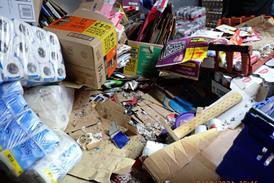


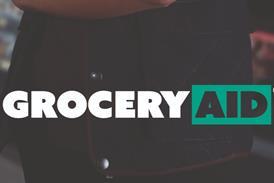





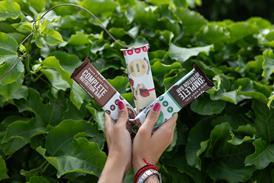

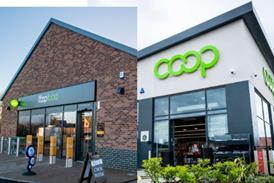
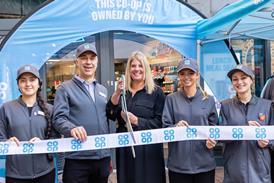






No comments yet